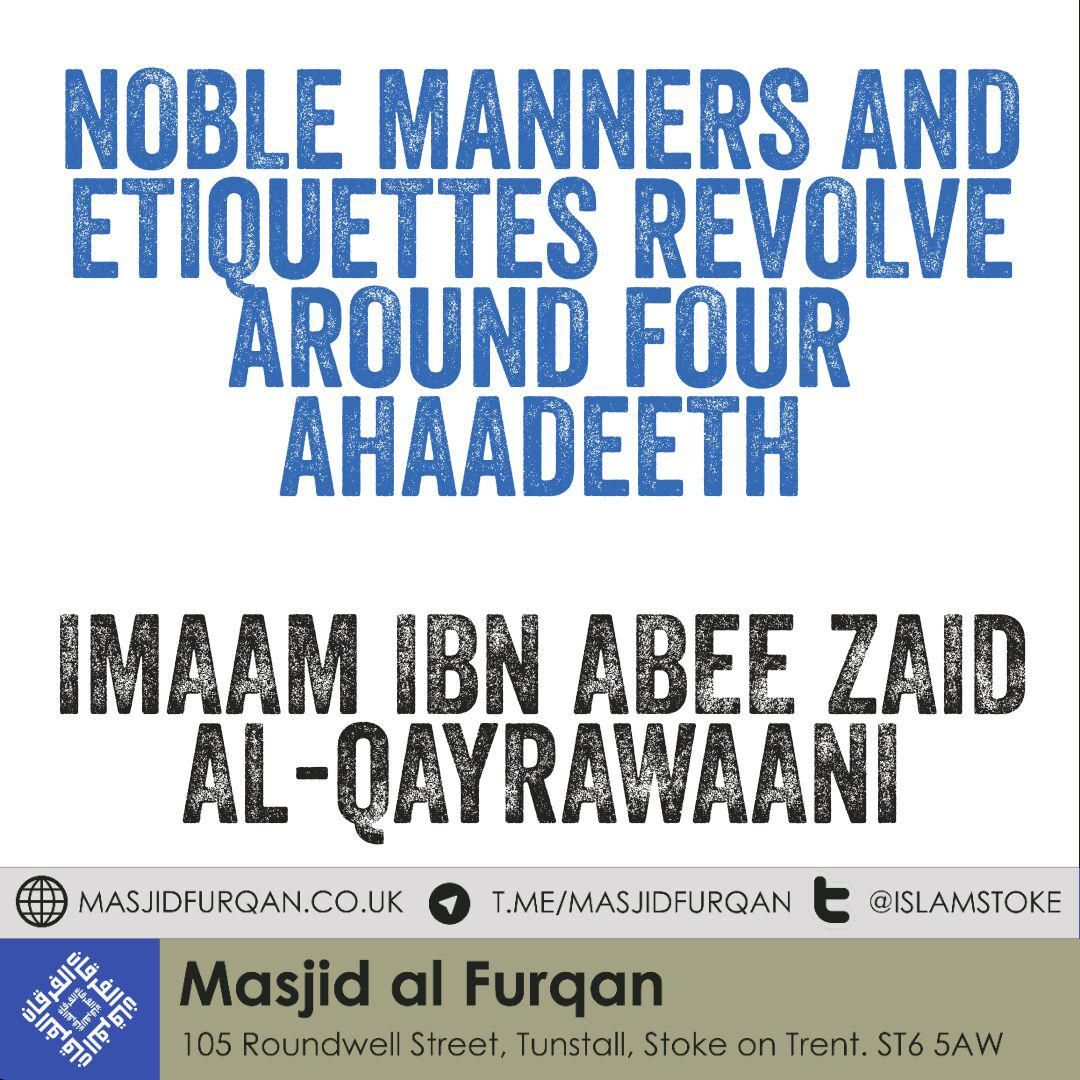
Noble Manners and Etiquettes Revolve Around Four Ahaadeeth
In The Name of Allaah, The Most Merciful, The Bestower of Mercy
Ibn Abee Zayd Al-Qayrawaani [rahimahullaah] said: All noble manners and etiquettes revolve around four ahaadeeth.
The First Hadeeth: “Whoever believes in Allaah and the last day then let him speak good or keep silent”.
This Hadeeth teaches us about restraining the tongue from (evil, false, doubtful speech etc); for whoever is unable to restrain his tongue from (these blameworthy affairs) is not considered to be from the people of good manners.
The Second Hadeeth: “Part of the perfection of a person’s Islam is to leave that which does not concern him.”
This Hadeeth teaches us to refrain from engaging in excess and that which does not concern us. The person who concerns himself with those affairs of the people that do not concern him – either by listening, looking or speaking -is not considered to be from the people of good manners.
The Third Hadeeth: A man said to the Prophet (sallal-laahu-alayhi-wasalam) “Advise me.” He said, “Do not become angry.” The man repeated his request several times, and each time the Prophet said to him, “Do not become angry.”
This Hadeeth teaches us self-restraint when we are angry. That is because anger is the basis of every evil in speech and action. Whoever cannot restrain himself (or herself) from (evil) when he is angry cannot be considered to be from the people of good manners.
The Fourth Hadeeth: None of you truly believes until he loves for his brother what he loves for himself.
This Hadeeth is a means of rectifying the heart and soul, so that a person’s heart is free from harbouring malice, hatred, envy towards his Muslim brothers and sisters.
Conclusion:
If a person acquires a precise understanding of these four ahaadeeth and acts upon them, they have indeed acted on all the affairs related to good manners and etiquettes. These four Hadeeth comprise of four affairs:
Restraining the tongue from (evil, false, doubtful speech etc)
Restraining oneself from excess – be it by way of speech, looking, listening etc
Restraining oneself from evil desires and wishes during anger.
To have a heart free from unjustified hatred; blameworthy envy (i.e. wishing that blessings bestowed on others should cease) and malice etc
[Lesson15. Explanation of the forty Hadeeth of Imaam An-Nawawi’ (rahimahullaah) by Shaikh Abdur-Razzaaq Al-Badr (may Allaah preserve him). Paraphrased]